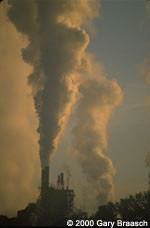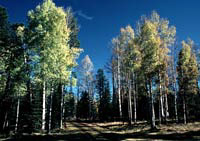THE HAGUE, Netherlands
This month’s international climate negotiations in The Hague, though full of sound and fury, are about one thing and one thing only: using policy in an attempt to bridge the wide gap between science and politics. If you keep that in mind, you’ll have some sense of whether the session is a success or not — a better sense, probably, than you’ll get from whatever official declaration ultimately emerges.
The basic tug-of-war is obvious: Science demands deep and rapid cuts in fossil fuel use to stabilize the planet’s climate, or at least slow its heating. But politicians, especially American politicians, don’t want to raise the price of oil or gas or coal. So an entire convention center full of smart people will go without much sleep for the next eight days trying to figure out how on earth to reconcile these two demands.
Take, for example, the question of counting forests as “carbon sinks,” which seems likely to emerge as one of the centerpieces of the debate about how to implement the Kyoto Protocol. A U.S. proposal would allow us to count our vast woodlands against our Kyoto emissions-reduction commitments (and perhaps Australia could do the same, if only their team manages to persuade negotiators to count any plant over 42 centimeters tall as a forest). For politicians, nothing could be more wonderful — they could be seen to be doing something about the world’s climate problem without having to really do anything at all.

A lot of hot air.
But for scientists, it presents a few problems. More than a few, really. In the first place, researchers have only basic guesses as to how much carbon dioxide forests absorb, where they absorb it, and under what conditions. Measuring it would be a nightmare — is this forest growth “new” or “old”?
And then there’s the study reported in last week’s edition of Nature, the first attempt to couple a model of forests and soils with models of the earth’s climate. What it found was that as the planet warms, the terrestrial biosphere will eventually stop soaking up carbon and start giving it off. That flip-flop — which they predicted will begin about 2050 — comes largely because warmer temperatures speed up the decomposition of organic matter in soil. Give a temperate forest a tropical climate, in other words, and it turns into the biological equivalent of a coal-fired power plant. How big a problem? Try 200 parts per million extra carbon dioxide, and 2 degrees centigrade additional global heating by the end of the century — numbers far bigger than any of the reductions that would result from the niftiest conceivable outcome in The Hague.
In other words, science keeps saying: More. And politicians keep saying: Just a teensy bit. Or, as my daughter put it last night at the dinner table, “I’ll have one bite and that’s all.”
Al Gore, within a couple of months of becoming vice president, defined the problem neatly: “The maximum that is politically feasible far exceeds the minimum that is scientifically necessary.” True enough — and the shame of the Clinton-Gore administration is that it did nothing to raise the level of political feasibility. When you open the Strategic Petroleum Reserve to keep pump prices down, you don’t exactly set an example.

Does this look like a sink to you?
And Gore as president, of course, is the good political scenario, the one that results if somehow all the ballots in Florida actually get counted. George W. Bush won’t go for the one-bite routine — as far as he’s concerned, it’s all broccoli and he’s not going to touch it. “Kyoto is a dead letter,” Bush’s chief environmental policy adviser, Christopher DeMuth, told journalists last month.
So have pity for the poor policy-makers. Somehow they must devise a painless solution to the most difficult scientific challenge we’ve ever faced, a cost-free way to make the biggest transition in the history of our economy. No wonder the delegates will be discussing an array of Rube Goldberg schemes: credits for forests, and for particular ways of plowing, and for fixing up Third World power plants, and so on down the line. Anything but actually changing the way we in the developed world live.
There are far more politicians than scientists yelling at the policy-makers, and so the treaty grows inexorably weaker. By Thanksgiving, some “agreement” may emerge. The chances that it will actually keep much carbon out of the atmosphere are smaller.

